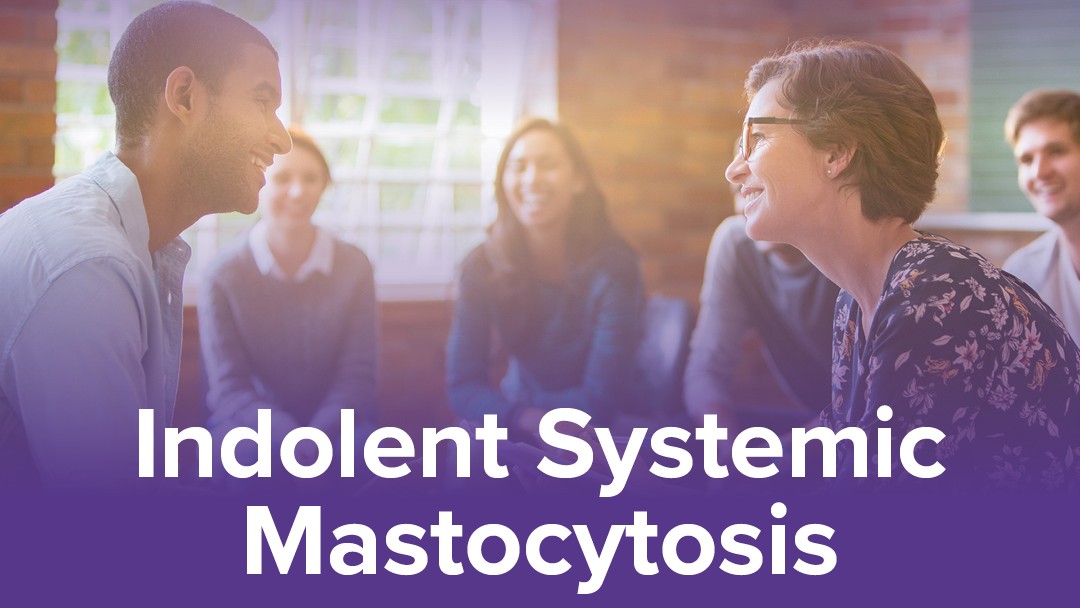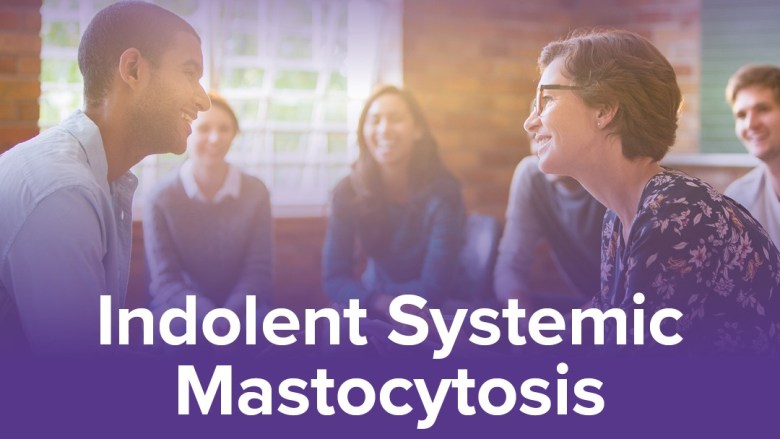In the complex world of rare diseases, even small advances in understanding can make a profound difference in patients’ lives. Medscape Live is bringing back-to-back educational programs to San Diego next month with one shared goal: improving outcomes and connection in indolent systemic mastocytosis, or ISM.
The paired sessions — “Patient-Centered Approaches to Indolent Systemic Mastocytosis: Advancing Care and Reducing Diagnostic Delays” for health care professionals, and “Building Bridges of Support and Understanding for Patients and Caregivers” for those living with ISM and their loved ones — will take place Nov. 1 at the Hyatt Regency San Diego. The event represents an innovative, multidimensional approach to medical education that emphasizes empathy, collaboration and actionable learning.
A new model for medical education
For decades, continuing medical education programs have focused primarily on scientific discovery and clinical practice. But for conditions like ISM — a rare, often misunderstood mast cell disorder — the biggest gaps aren’t in knowledge; they are in awareness, communication and understanding between those who diagnose and those who live with the disease. Medscape Live’s dual-event format directly addresses these issues. By hosting both a professional education program and a patient-caregiver workshop on the same day, in the same city, the initiative invites clinicians and patients into a shared conversation about progress, challenges and the human impact of systemic mastocytosis.
“Patient-centered” isn’t just a buzzword here; it’s the foundation of both sessions. Clinicians gain insight into how to identify ISM earlier and manage symptoms more effectively, while patients and caregivers gain the knowledge and confidence to advocate for themselves in clinical settings. It’s a full-circle model designed to create ripple effects in both professional practice and daily life.
Understanding ISM
Indolent systemic mastocytosis affects mast cells — immune cells that play a crucial role in allergic responses and inflammation. When these cells grow and accumulate abnormally,
patients can experience a wide range of symptoms: skin lesions, gastrointestinal discomfort, fatigue, brain fog, anaphylaxis and more. Because these symptoms mimic other conditions, ISM is often misdiagnosed or overlooked, leading to years of uncertainty and frustration for patients.
For clinicians, the challenge lies in recognizing patterns, ordering the right diagnostic tests (such as tryptase levels and KIT mutation analysis) and understanding the nuances of patient-reported experiences. For patients, the challenge is navigating care, finding knowledgeable providers and managing symptoms that can drastically affect quality of life.
By addressing both perspectives in one coordinated educational effort, Medscape Live aims to help shorten the diagnostic journey, turning years of unanswered questions into timely, informed care.
For health care professionals The morning program, “Patient-Centered Approaches to Indolent Systemic Mastocytosis: Advancing Care and Reducing Diagnostic Delays,” will run 8-10 a.m. Nov. 1.
Designed specifically for physicians, nurse practitioners, physician assistants, pharmacists and other health providers, this interactive symposium will explore:
- Updated diagnostic criteria and testing strategies to distinguish ISM from other mast cell disorders
- Current treatment approaches and the evolving role of targeted therapies
- Patient-centered communication strategies that promote trust, adherence and shared decision-making
- Case-based discussions illustrating how real-world challenges can be turned into opportunities for earlier recognition and improved outcomes
Through expert-led discussions and clinical scenarios, participants will leave with actionable insights to immediately apply in their own practices. The focus is not only on what to treat, but how to listen, turning complex science into compassionate care.
For patients and caregivers Immediately following the professional symposium, Medscape Live will host the patient and caregiver program, “Building Bridges of Support and Understanding for Patients and Caregivers,” from 10:15 a.m. to 3:30 p.m. at the same venue.
This session is designed for people living with ISM, their family members and advocates who want to better understand the condition, treatment options and emotional landscape of life with a rare disease. Topics include:
- Understanding ISM and its symptoms: What’s happening in the body and why
- Navigating the health care system: How to communicate effectively with clinicians and find the right specialists
- Managing daily life: Strategies for symptom tracking, nutrition, and self-advocacy
- Psychosocial well-being: Addressing the mental and emotional toll of living with a rare chronic condition
Attendees will hear from expert faculty, patient advocates and peers, with opportunities to ask questions and share personal experiences. The format encourages connection and empowerment, transforming complex medical information into practical steps for everyday living.
A shared mission
What sets this dual workshop series apart is its integrated vision. While the sessions are tailored for distinct audiences, their overarching theme — partnership in care — unites them.
When clinicians and patients approach ISM from both sides of the conversation, they create a shared language of understanding. Clinicians learn not only to identify symptoms, but to appreciate the lived experiences behind them. Patients, in turn, gain clarity about what their clinicians see, how diagnostic pathways work and why certain treatments are chosen.
This two-way model transforms care from something done to patients into something built with them, and that’s the future of effective, compassionate medicine.
The broader impact
While the focus of the November programs is indolent systemic mastocytosis, the broader implications reach far beyond a single disease.
By bringing together health care professionals and patients in coordinated learning environments, Medscape Live is modeling a framework that could enhance communication across specialties. Whether in oncology, immunology, dermatology or allergy care, this approach fosters the kind of human connection that leads to better outcomes and more meaningful clinical relationships.
For a condition as rare and under-recognized as ISM, these efforts also carry the weight of advocacy. Every clinician who learns to recognize ISM earlier can change the trajectory of someone’s life. Every patient who gains the tools to advocate for themselves becomes a partner in progress.
Looking ahead The upcoming workshops mark an important milestone in Medscape Live’s ongoing mission to advance health care through education that matters. By bridging scientific rigor with empathy, and expertise with lived experience, these sessions demonstrate that continuing education can, and should, extend beyond the classroom.
For health care professionals, it’s an opportunity to sharpen diagnostic skills, update knowledge and join a network of colleagues equally passionate about improving patient care. For patients and caregivers, it’s a chance to find clarity, community and confidence.
Together, the sessions represent a future where education doesn’t just inform, it transforms.
What: Medscape Live symposium on indolent systemic mastocytosis
Where: Sheraton San Diego Mission Valley, 1433 Camino del Rio S, San Diego
When: Nov. 1
· Session for clinicians, 8-10 a.m.
· Session for patients, 10:15 a.m.-3:30 p.m.
Medscape Live is a leading provider of continuing education for health care professionals worldwide. Through interactive events, expert-led symposia and dynamic virtual programs, Medscape Live empowers clinicians and patients alike with evidence-based insights that advance care, improve communication and drive better health outcomes for all.
READ NEXT

